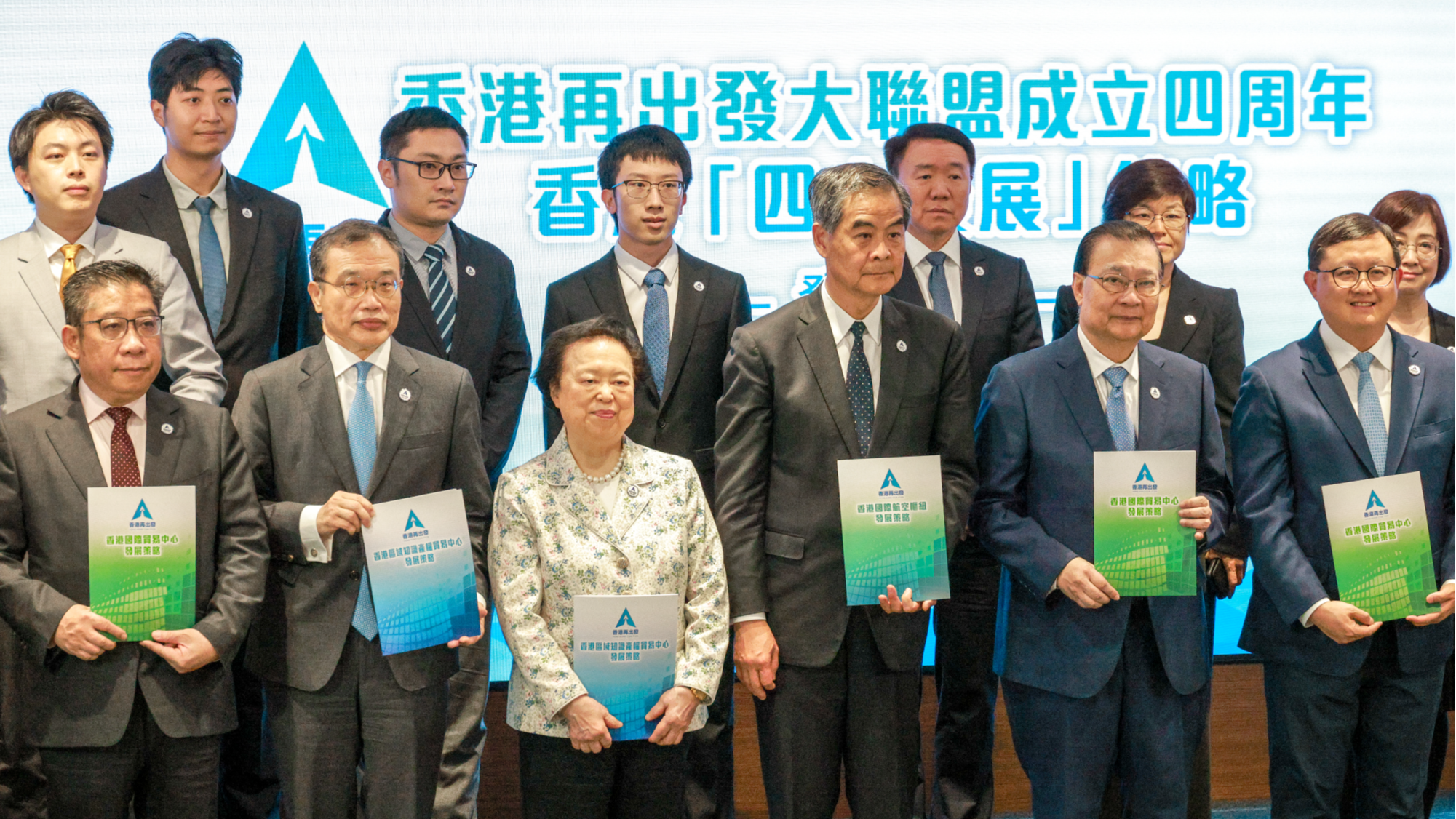
Hong Kong economic experts at a forum on Tuesday called for a transformation of the city’s trade model to embrace digital technologies and cross-border e-commerce amid geopolitical uncertainties.
The forum, organized by the nongovernmental organization Hong Kong Coalition, discussed Hong Kong’s role in global trade and explored ways to enhance the city’s position as a leading international trade hub.
Fang Zhou, research director of the One Country Two Systems Research Institute, said that Hong Kong must adapt to changes arising from e-commerce and geopolitical shifts by helping Chinese enterprises manage their global supply chains as they expand overseas.
Xu Yan, associate director of the Center for Business Strategy and Innovation of the Hong Kong University of Science and Technology, highlighted the growing importance of digital technologies in shaping the future of trade
Fang said that Hong Kong’s online transactions account for less than 10 percent of retail transactions, compared to 30 percent on the Chinese mainland.
ALSO READ: HK Coalition proposes developing strategies for four key industries
“In this regard, we need to make joint efforts between governments and the business community to build platforms that allow cross-border shoppers to purchase goods from each other’s platform,” he said.
“Cross-border e-commerce for Hong Kong means selling products to both the overseas and the mainland markets,” Fang added.
Raymond Yip, former deputy executive director of the Hong Kong Trade Development Council, said Hong Kong can grab opportunities to leverage its partnership with the United Arab Emirates to boost its economy.
“Hong Kong can use the UAE’s vast domestic import and export and logistics network, inland industrial zone certification, and its warehousing and logistics services to enter other surrounding markets, including the African seed markets,” Yip said.
ALSO READ: HK Coalition to build consensus in society to move forward
Xu Yan, associate director of the Center for Business Strategy and Innovation of the Hong Kong University of Science and Technology, highlighted the growing importance of digital technologies in shaping the future of trade.
“In today’s trade, such as offshore trade, (some goods) do not pass through Hong Kong at all, but Hong Kong can still obtain a good income from it,” Xu said. “Apart from logistics, this involves information flow, business flow, and capital flow.”
According to data from international shipping consultancy Alphaliner, Hong Kong’s container port throughput plunged 14.1 percent last year, marking the seventh consecutive year of decline. The city’s ranking fell out of the top 10 busiest ports globally for the first time, slipping to 11th.
The discussion followed the coalition’s announcement of a strategic report on Monday that outlines the development of Hong Kong as a global center in four key areas. These include the city’s roles as an international trade center, an international aviation hub, a cultural and artistic exchange center between the Chinese mainland and the rest of the world, and a regional intellectual property trading center.
READ MORE: Hong Kong Coalition reveals latest plans to help HK businesses
Kennedy Wong Ying-Ho, deputy secretary-general of the Hong Kong Coalition, said the report, which spans over 70 pages and took nearly a year to complete, will soon be made public.
Tung Chee-hwa, Hong Kong’s first chief executive, and Leung Chun-ying, the city’s third chief executive and a vice-chairman of the National Committee of the Chinese People’s Political Consultative Conference, launched the 1,500-member Hong Kong Coalition in 2020 to uphold the “one country, two systems” principle and promote stability and prosperity in the city.
tianyuanzhang@chinadailyhk.com


